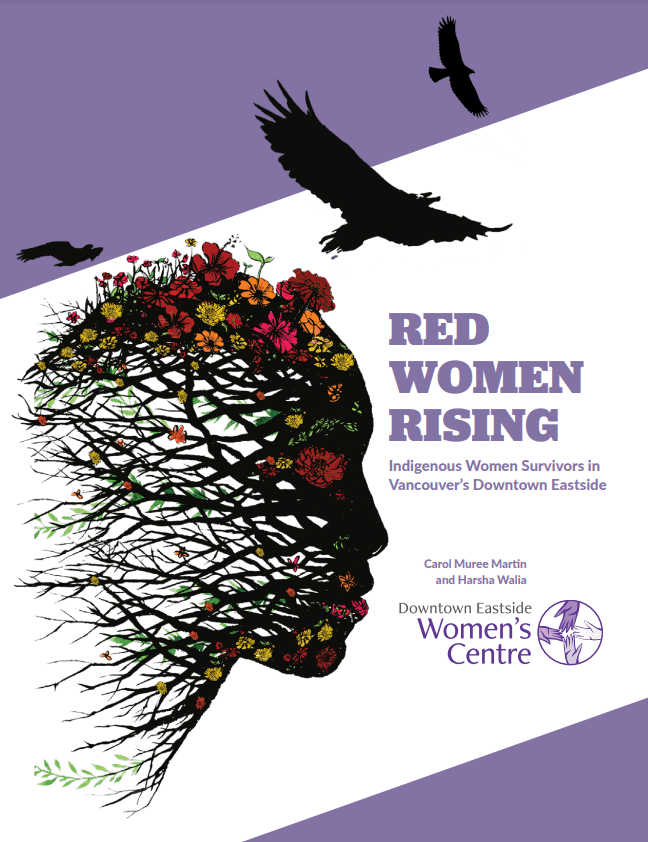88 search results
for
Health, wellness and services
Immediate services needed in the DTES
Recommendation 23: Fund an Indigenous legal clinic in the DTES that can support Indigenous women in all criminal and civil legal matters including but not limited to family, criminal, mental health, and poverty law issues.-
Category and theme:
Audience:
Groups affected:
Location of recommendation:
Immediate services needed in the DTES
Recommendation 24: Fund a Bear Clan Patrol in the DTES that is led by Indigenous residents and based on Indigenous reciprocal responsibilities of safety, security, and kinship.-
Category and theme:
Audience:
Groups affected:
Location of recommendation:
Immediate services needed in the DTES
Recommendation 25: Provide a free medical accompaniment program where women are guaranteed rides and an accompaniment advocate for all medical appointments.-
Category and theme:
Audience:
Groups affected:
Location of recommendation:
Recommendation 26:
Provide an annual transport allowance for Indigenous women in the DTES to be able to travel to their home community.
-
Category and theme:
Groups affected:
Location of recommendation:
Guaranteed public services
Recommendation 28: Provide a safe and affordable home for every Indigenous woman on and off reserve. This housing must be with long-term security of tenure, independent of matrimonial or common-law status, and self-contained units of at least 400 square feet with bathrooms and kitchens. Housing must also consider specific needs such as mobility access, space for children and extended families, and ceremonial practices. Highest priority for social housing should be given to Indigenous women fleeing violence and Indigenous mothers at risk of child apprehension.-
Category and theme:
Audience:
Groups affected:
Location of recommendation:
Guaranteed public services
Recommendation 30: Ensure Indigenous mothers are able to maintain an adequate standard of living by raising income assistance and disability rates, ensuring safe and affordable housing, and guaranteeing food and transit allowances. Provide grandparents raising grandchildren, and all kinship care providers, with livable incomes and benefits. Provide income, housing, food, transit and all additional supports to youth transitioning out of government care until the age of 25 years old.-
Category and theme:
Groups affected:
Location of recommendation:
Guaranteed public services
Recommendation 31: Guarantee a free and culturally appropriate child care system for all Indigenous families, including families awaiting kinship care placements, that accommodates children of all needs and abilities and is independent from child welfare services.-
Category and theme:
Groups affected:
Location of recommendation:
Guaranteed public services
Recommendation 33: Provide a free transit pass for children ages 0-18 years old, all youth transitioning out of government care till age 25 years old, and for all adults on pensions, income assistance, and disability assistance.-
Category and theme:
Groups affected:
Location of recommendation:
Recommendations to end Indigenous women’s displacement from land
Recommendation 37: All Canadian and Aboriginal governments must ensure that Indigenous women are engaged fully and have equitable access to decision-making on issues of governance, land, culture, language, housing, child care, income security, employment, education, health, and other areas impacting Indigenous women.-
Category and theme:
- Culture and language ,
- Decolonization and Indigenous rights ,
- Discrimination and hate ,
- Economic inequality ,
- Education and employment ,
- Health, wellness and services ,
- Indigenous children and youth in care ,
- Indigenous rights and self-governance ,
- Poverty and economic inequality ,
- Public services ,
- Representation and leadership ,
- Sexism
Audience:
Groups affected:
Location of recommendation:
Recommendations to end Indigenous women’s displacement from land
On reserve
Recommendation 40: The federal government must guarantee:- Access to clean drinking water; food security based on a traditional diet; critical infrastructure including roads and sanitation systems; and essential health, education, child care, housing, transport, recreational, cultural, and emergency services on every reserve.
- Safe, affordable, and livable housing for every woman on her reserve that is independent of her matrimonial status.
- Affordable child care and licensed day care options on every reserve.
- Complete complement of maternal and infant/child health services on reserve to enable women to remain closer to home to give birth.
- Free public transportation between each town and city located along the entire length of Highway 16 and all other highways, with a number of safe homes and emergency phone booths along the length of all the highways.
- Increase funding on all reserves for programs and services that strengthen traditional and cultural knowledge grounded in Indigenous laws, values, and practices.
- Range of anti-violence services including preventive programs, crisis intervention, victim services, advocacy support, restorative justice circles, shelters, transitional housing, and second-stage housing on every reserve.
- Cultural sensitivity training for all first responders such as police, healthcare professionals, and social workers who assist survivors of violence on reserve.
-
Category and theme:
- Accessibility ,
- Accessible services and technology ,
- Culture and language ,
- Decolonization and Indigenous rights ,
- Discrimination and hate ,
- Emergency response ,
- Gender-based violence ,
- Health ,
- Health, wellness and services ,
- Housing and homelessness ,
- Poverty and economic inequality ,
- Pre-natal care ,
- Public services ,
- Sexism
Audience:
Groups affected:
Location of recommendation:
